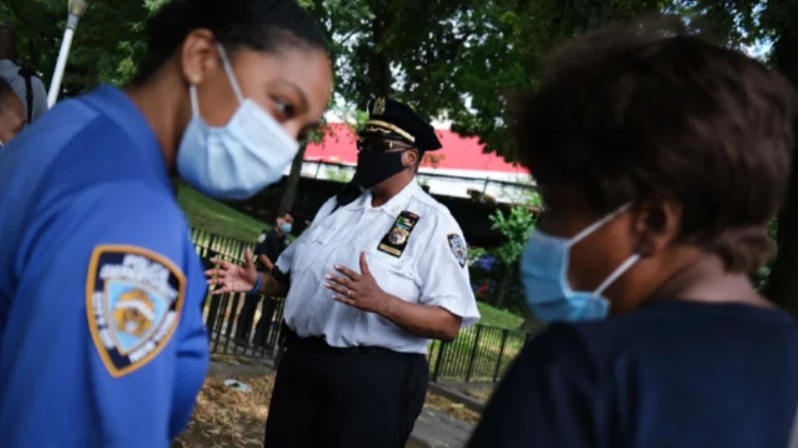(Akiit.com) I recently read a story about a New York man attacking a woman on the city’s subway with his feces––that’s right, human excrement. The report sounded like something out of The Onion, a satirical media outlet, replete with an outlandish premise that speaks candidly to the realities of life. I was mistaken, as it turned out. The story was true and caught on video. This brand of street violence is becoming an alarming trend in New York City and cities across the United States. According to the Council on Criminal Justice’s crime research, homicides have surged by over 50% and gun violence by 8%. (CCJ).
The reality is that the United States has a crime problem that has been exacerbated by both the COVID-19 pandemic and the massive layoffs that have led to considerable unemployment, particularly in major cities. The situation is destined to worsen as financial disparity widens between the haves and have-nots, and the uninformed continue to campaign for the defunding of police.
I am horrified by the violence and devastation we’re witnessing throughout the country, and I am outraged at the fact that the only force we have to defend us and keep our streets safe and clean––law enforcement––is constantly being demoralized, overworked, and underappreciated. This has resulted in law enforcement retiring at unprecedented rates. We must do something about it so that we can alter the trajectory of our country, and we need to do it now.

The first step toward resolving this issue is to increase investment in law enforcement and spend more money to assist in the recruitment of talented and educated police officers who are suited to the demands of the job. We also need to improve technology to better aid police to prevent crime in densely populated areas. I’ll be the first to admit that we need to clean up the bad apples within police departments, and I’m not blind to this, but the great majority of police officers are wonderful individuals who should be praised, not condemned.
The second step is to strengthen law enforcement’s relationship with the communities they protect and serve. Communities and police will be safer if trust is restored and relationships are built. Not only will police and community members be able to more effectively interact with each other without fear for their own safety, but community members will also be able to view the police officers as more than just the uniforms they wear. It will also assist in the removal of troublemakers from communities as well as the police force. Having events where police can connect with the public and community groups is an essential part of resolving this issue.
The third stage is to convey a clear message to criminals that their predatory conduct against innocent individuals in their communities will not be tolerated. We must quit making excuses and constantly blaming everyone and everything else for the issues that plague our communities. Instead, we must look within ourselves to tackle these destructive issues and ask what we can do to better our communities and rid them of the ruinous behavior of criminal actors. While this may be more prevalent in some communities than it is in others, it is essential nonetheless in order to prevent criminals from traversing community borders.
We need to toughen up on crime. This doesn’t mean targeting certain groups, instead it requires sending a clear message to criminals about what we will and won’t tolerate. We must emphasize the significance of the family unit and men participating in the direction of young men; this is in the best interests of our communities and country.
Young men require honorable men to mentor them and serve as guides and resources. They must be a mentor who can show these young men what is and what is not acceptable. Unfortunately, there aren’t enough of them, which is why we see young men, particularly uneducated ones, with little respect for their communities and for human life.
Our societal norms have shifted so dramatically over time that they have created an expectation of mediocrity and victimization that justifies not only the awful behavior of our young men, but of young people in general. The steps are clear in terms of what we need to do: support our officers, build better relationships between officers and communities, and focus on instilling better values in young people. Following these steps would change the trajectory of our current reality.
Despite this, we must be honest with ourselves about both the state of our country and the ugliness that continues to spread within it regardless of who is committing these atrocious acts. We must address it, discuss it, and move forward. We must also be honest with ourselves about the state of our country and the ugliness that persists.
Columnist; Armstrong Williams
Official website; http://www.armstrongwilliams.com









Leave a Reply